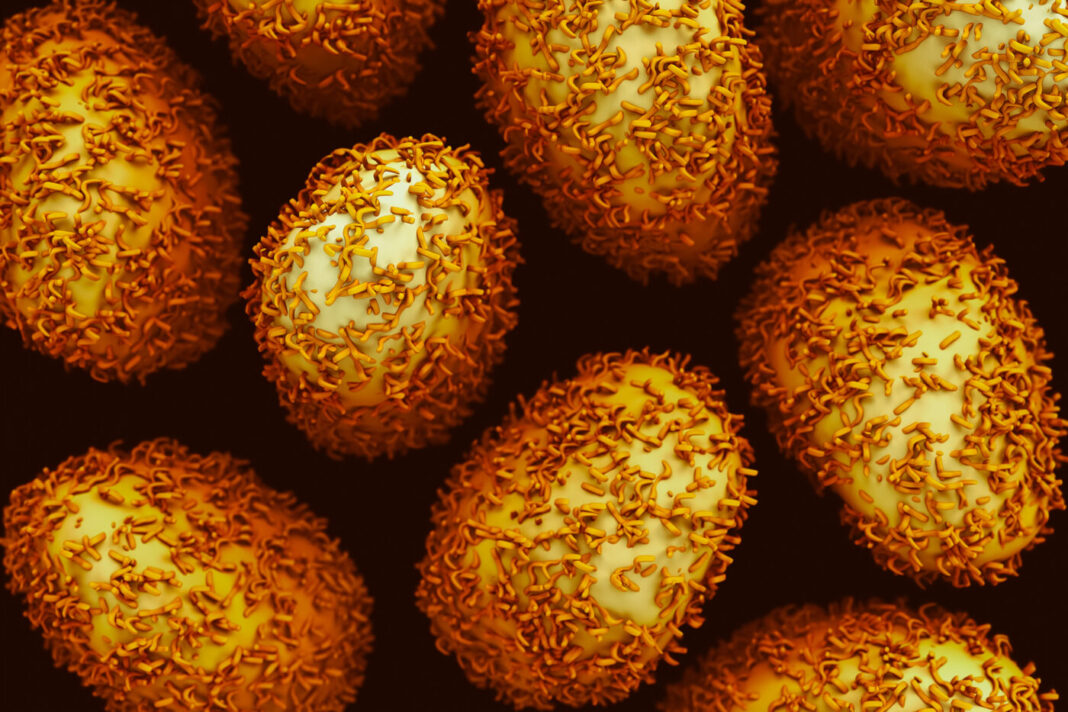Physicians have long warned about the intake of a high-fat diet due to its link to poor health outcomes and diseases such as cancer and heart disease. The CDC states dietary components high in saturated fats such as red meat are thought to be risk factors for colon cancer. Now, researchers from Arizona State University (ASU) have taken a closer look at how high-fat diets can trigger a series of events that leads to intestinal and colon cancer. Their findings using mouse models, may pave the way for potential treatments or prevention of colorectal cancer in humans.
The study was published in the journal Cell Reports in a paper titled, “High-fat diet-activated fatty acid oxidation mediates intestinal stemness and tumorigenicity,” and led by School of Life Sciences assistant professor Miyeko Mana, PhD.
“Obesity is an established risk factor for cancer in many tissues. In the mammalian intestine, a pro-obesity high-fat diet (HFD) promotes regeneration and tumorigenesis by enhancing intestinal stem cell (ISC) numbers, proliferation, and function,” wrote the researchers. “Although PPAR (peroxisome proliferator-activated receptor) nuclear receptor activity has been proposed to facilitate these effects, their exact role is unclear. Here we find that, in loss-of-function in vivo models, PPARα and PPARδ contribute to the HFD response in ISCs.”
“There’s epidemiological evidence for a strong link between obesity and increased tumor risk,” said Mana. “And in the intestine, the stem cells are the likely cell of origin for cancer. So, what is that connection? Well, diet is something that feeds into that cycle of obesity and colorectal cancer.”
ISCs are thought to help coordinate intestinal tumor formation when they adapt to high-fat diets, and elevate cancer risk.
“We were following up on mechanisms that might be required for stem cells to adapt to the high-fat diet—and that’s where we came across the PPARs,” said Mana. These PPARs trigger a cellular program that elevates cancer risk, but the exact mechanisms were unclear because there are multiple types of PPARs, and complexities in teasing out their roles.
“There is a family of three PPARs, named delta, alpha, and gamma. At first, I thought just PPAR delta was involved, but in order to see if that gene is really responsible for the phenotype, you have to remove it.”
The researchers were able to observe what role individual PPAR delta and alpha play by using a mouse model that controlled their activity in the cell. The researchers observed the differences between mice given a long-term high-fat or normal diet, and monitored the activity of PPAR.
“But when we removed it from the intestine, we still observed the phenotype. So, we wondered if maybe another PPAR was compensating and that’s where we thought about PPAR alpha. Both of those (PPAR delta and PPAR alpha) appear to be required for this high-fat diet phenotype within the stem cells.”
The researchers then focused their attention on downstream of the PPARs.
“So, we looked more downstream at what these two factors (PPARs) may target, and that was this mitochondrial protein, Cpt1a,” said Mana. “This is required for the import of long chain fatty acids (LCFAs) into mitochondria for use. The LCFAs are part of the high-fat diet.”
When the researchers performed the mouse knockout study of Cpt1a, they discovered they could block tumor formation. The loss of Cpt1a prevented both the expansion and proliferation of the ISCs in the crypts.
“If you remove Cpt1a, you are spared this high-fat diet phenotype in the intestinal stem cells,” said Mana. “So, you lower your risk of tumorigenesis at this point.”
The researchers are looking forward to their work being applied to human colon cancers.
“These studies have all been in these mouse models to date,” said Mana. “One idea we started with was to understand the metabolic dependencies of the tumors that can arise in a natural or pharmacological context and then target these metabolic programs to the detriment of the tumor but not the normal tissue. We are making progress with the high-fat diet model. Ultimately though, the goal is to eliminate or prevent colorectal cancer in humans.”


